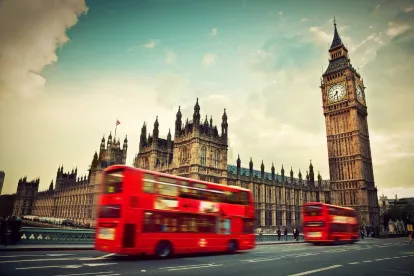July was another busy month for sanctions in the United Kingdom. We have prepared a briefing on the key recent developments and suggested practical steps for companies and legal professionals to assist in understanding the fast-developing sanctions regime of the United Kingdom.
PROVISION OF LEGAL SERVICES
In yet another impact from the war in Ukraine on the Russian economy, the United Kingdom introduced restrictions on Russian entities or persons accessing legal advice from the United Kingdom’s legal system, impeding the flow of transactional legal services to Russia. The new measures complement an existing set of sanctions in relation to legal advice.
As contracting parties regularly choose the law of England and Wales as their governing law, the restrictions are widely drafted in order to prevent even international companies from obtaining legal advice in relation to deals that could benefit Russia, such as trade deals between global corporations or international money lending. The restriction applies to “legal advisory services”, which is drafted broadly, to relate to non-contentious matters.
Most notably, the measures apply to UK persons (UK nationals and entities incorporated or constituted under the laws of the United Kingdom), irrespective of their physical location, and to all persons located in the United Kingdom. UK persons are prohibited from directly or indirectly providing legal advisory services to any non-UK person in relation to activity that would be prohibited by UK financial and trade sanctions if the activity was undertaken by a UK person or within the United Kingdom. In other words, the provision of legal advice may be prohibited, even in circumstances where it does not directly involve a UK person or is not linked to the United Kingdom.
According to the government’s announcement, the United Kingdom exports £56 million in legal services to Russian businesses every year, pointing to the severity of the ban on legal services. The new laws are intended to weaken Russia’s vulnerable sectors. In contrast to Russian businesses, Russian nationals will still be able to access legal representation, distinguished from advice, in the United Kingdom, as legal advice is a core element of the United Kingdom’s rule of law.
In house and private practice legal professionals operating in the United Kingdom should exercise caution and conduct a comprehensive due diligence process prior to accepting any new instructions. Otherwise, they may be running a risk of violating the recent legal services ban.
IRAN SANCTIONS
On 6 July 2023, the UK Foreign Secretary announced that the United Kingdom will enact a new sanctions regime in relation to Iran, which would expand its powers to tackle Iran’s key decision-makers. The development comes in response to the continuous hostile and destabilizing behavior of Iran around the world and in the United Kingdom.
It is anticipated that the new regime will significantly widen powers of the UK government to sanction individuals and entities by creating new sanctioning criteria under which parties can be designated, such as the following:
Any activities which undermine peace, stability, and security in the Middle East and internationally;
The use and spread of weapons or weapons technologies from Iran;
The Iranian regime’s undermining of democracy, respect for the rule of law, and good governance;
Other hostile activities towards the UK and our partners emanating from the Iranian regime, including threats to our people, property, or security.
Once enacted, the new economic restrictions against Iran will build on a pre-existing set of the Iran Human Rights sanctions regime, which came into force in 2020. These rules allow the United Kingdom to designate individuals and entities who are responsible for serious human rights violations in Iran. The parties who are captured under the Iran Human Rights sanctions regime face asset freezes and travel bans. In July, the United Kingdom added 13 new designations under the regime.
GENERAL LICENCES
We have discussed developments in relation to asset freeze licences and their main purpose in our previous sanctions update.
Most recently, the HM Treasury’s Office of Financial Sanctions Implementation (OFSI) has updated its general guidance on specific licences in relation to the application process (please refer to sections 6.9 and 6.11). In particular, it is now stipulated that if an application is deemed to be incomplete, it will be returned to an applicant for resubmission. Furthermore, resubmitted applications will not automatically inherit any priority unless for a genuine reason, such as where they relate to humanitarian purposes or where there is a risk to life.
It is therefore crucial to ensure that the application for a specific licence is well-drafted, is accompanied with sufficient evidence, and demonstrates all criteria for the relevant licensing grounds before it is submitted. It is possible to consult OFSI in relation to the underlying licensing process and the applicable evidentiary requirements for the applications; however, OFSI will not provide any legal advice to the applicants, which may be necessary in order to appropriately complete the licensing application. As such, companies are advised to utilise legal and professional advisers when preparing their applications for specific licenses so that they are granted in a timely manner and without the need for resubmissions.
CONCLUSION
The sanctions regime in the United Kingdom continues to retain its forefront position on the legislative field. K&L Gates closely observes developments in the UK sanctions regime and, more widely, across the United States, European Union, and other territories.






 />i
/>i

